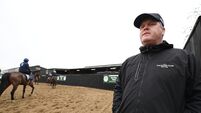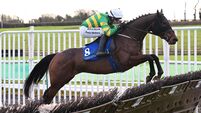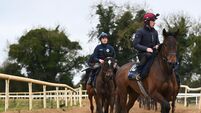Tramore racecourse not to blame in death of four horses
The Health and Safety Authority said its investigation into the safety of jockeys at Tramore is still ongoing.
However meetings between the Turf Club, trainers, jockeys, breeders and the racetrack management has decided the evening meeting when the animals died was a freak.











